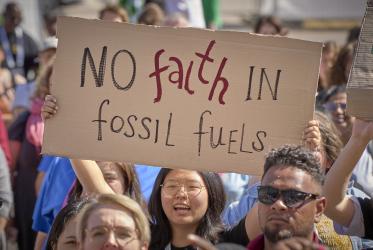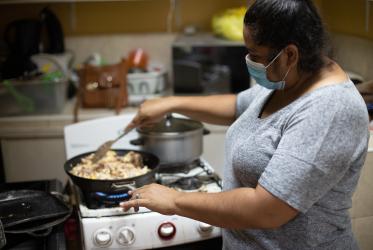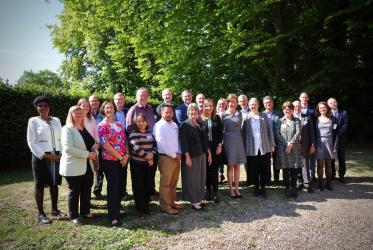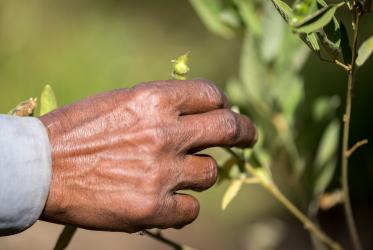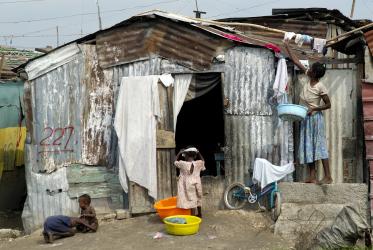Displaying 21 - 40 of 287
WCC invites webinar on ’Racism, Land and Food’
09 December 2021
Dr Abuom reflects on women of faith as healers of creation
05 October 2021
Scottish and UK religious leaders call for urgent climate action
20 September 2021
Pacific Theological College publishes “A COVID-19 Wellbeing Statement”
03 September 2021
